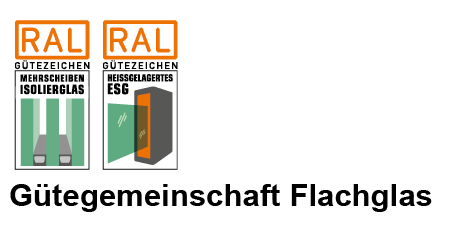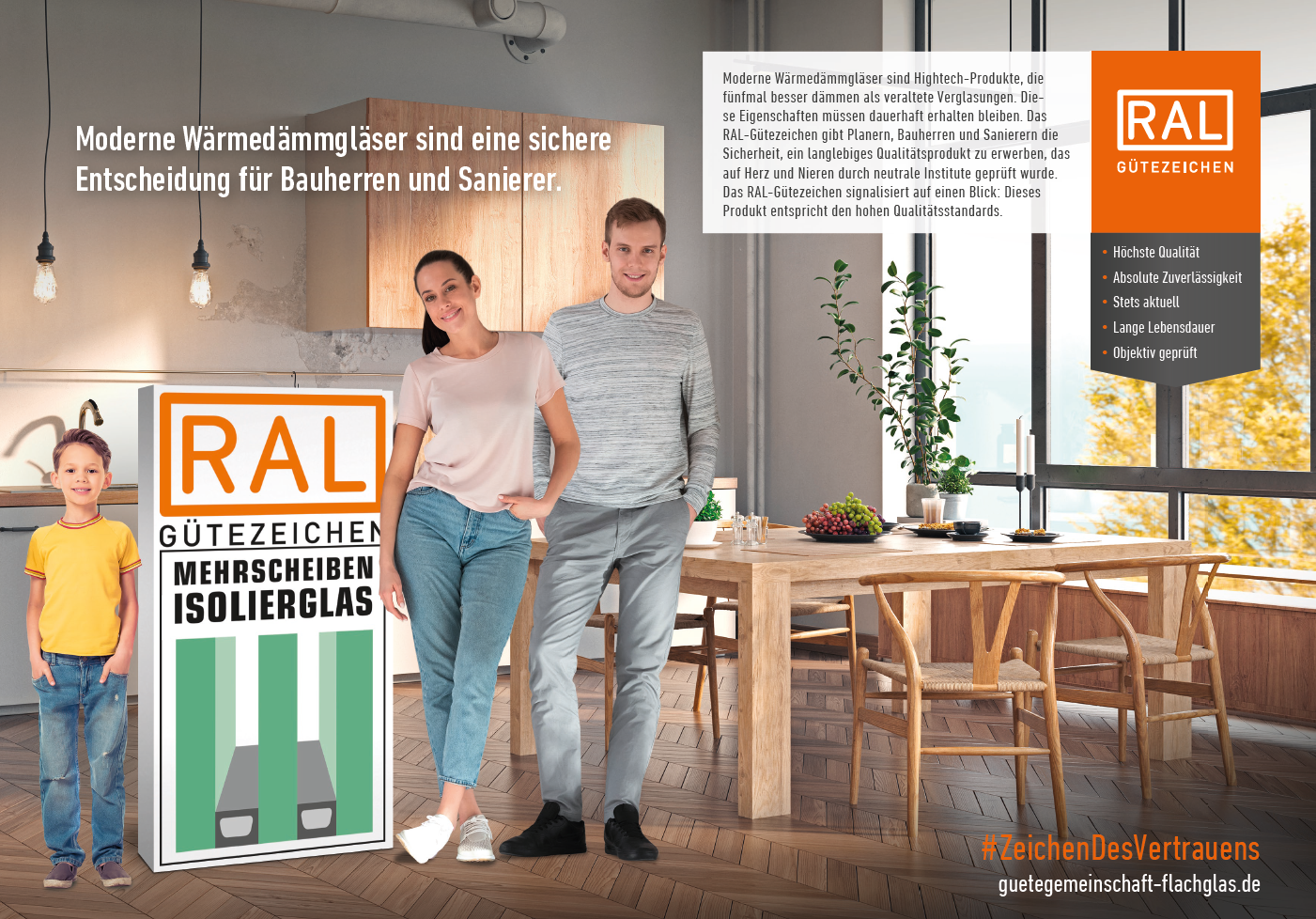Troisdorf. With rising energy costs and the challenges posed by climate change, the energy efficiency of buildings is becoming increasingly important. A decisive factor in how much heat stays inside a building – or escapes to the outside – is the glazing of windows and doors. Support is provided by the Gütegemeinschaft Flachglas e.V. (GGF) with its RAL Quality Mark for Insulating Glass (MIG). “The RAL Quality Mark stands for reliable thermal insulation and long-term energy savings – lasting for decades,” explains Jochen Grönegräs, Managing Director of Gütegemeinschaft Flachglas e.V. The quality mark gives architects, builders, and planners clear orientation in the market for durable and high-quality glass products.
Insulating Glass – Efficient by Design
Insulating glass consists of at least two panes and a gas-filled cavity in between, usually with argon or krypton. With special coatings and high-quality sealing, it provides excellent thermal insulation and minimizes energy losses. This makes it highly efficient – today and in the long term.
Certified Quality through Independent Monitoring
It’s not only the technical design that matters, but also long-term reliability in daily production. With the RAL Quality Mark, GGF requires its manufacturers to undergo regular third-party inspections by independent institutes. This ensures consistent quality, as well as lasting airtightness, insulation values, and soundproofing.
“This assurance is crucial to ensure that buildings remain efficient, reliable, and sustainable in the long run,” says Grönegräs.
Sustainability that Pays Off
Insulating glass makes a significant contribution to the energy efficiency of modern buildings. It prevents heat loss in winter and keeps interiors pleasantly cool in summer, thereby reducing the need for heating and air conditioning. According to the German Environment Agency, 20 to 40 percent of total heating energy escapes through uninsulated windows in an unrenovated building. Energy performance improves the higher the heat gains through the glass and the lower the losses.
High-quality insulating glass also ensures lasting thermal comfort – cold drafts or noticeable temperature differences near large window surfaces are a thing of the past. At the same time, its insulating effect reduces noise, making interiors quieter and more comfortable.
“Quality-tested insulating glass offers builders several advantages: saving energy, creating living comfort, and protecting the environment in a sustainable way,” says Jochen Grönegräs.
A Reliable Basis for Sustainable Construction
Insulating glass plays a central role in energy-efficient and sustainable building. The RAL Quality Mark stands for tested quality and reliable performance values – a secure foundation for construction projects that are economically and environmentally sustainable in the long term.






